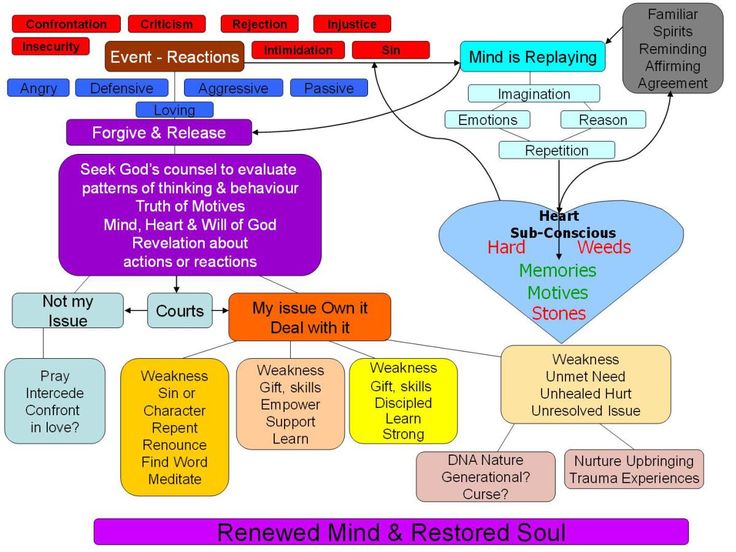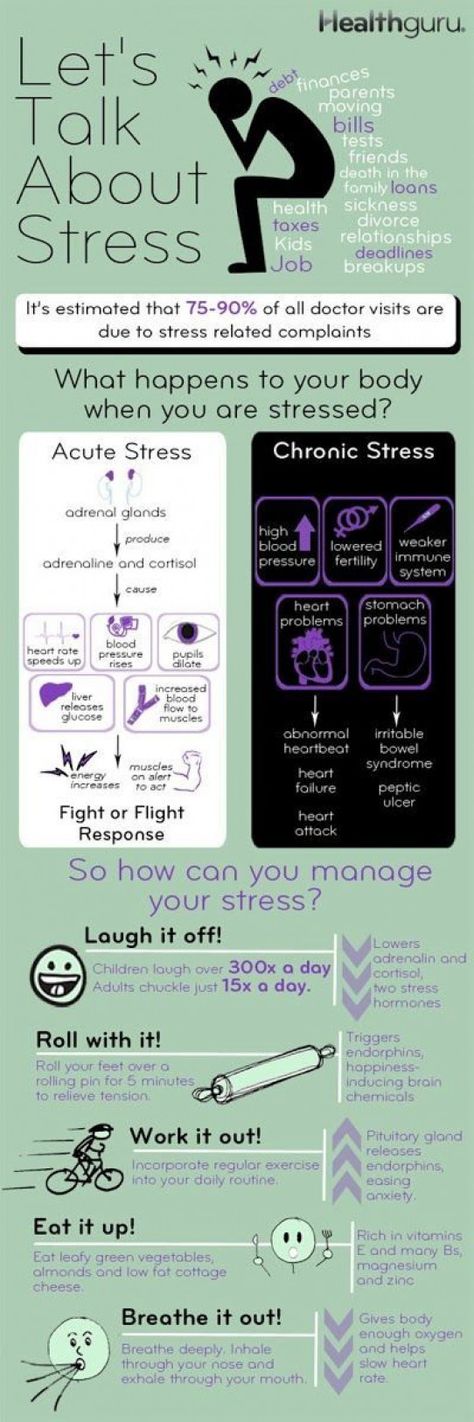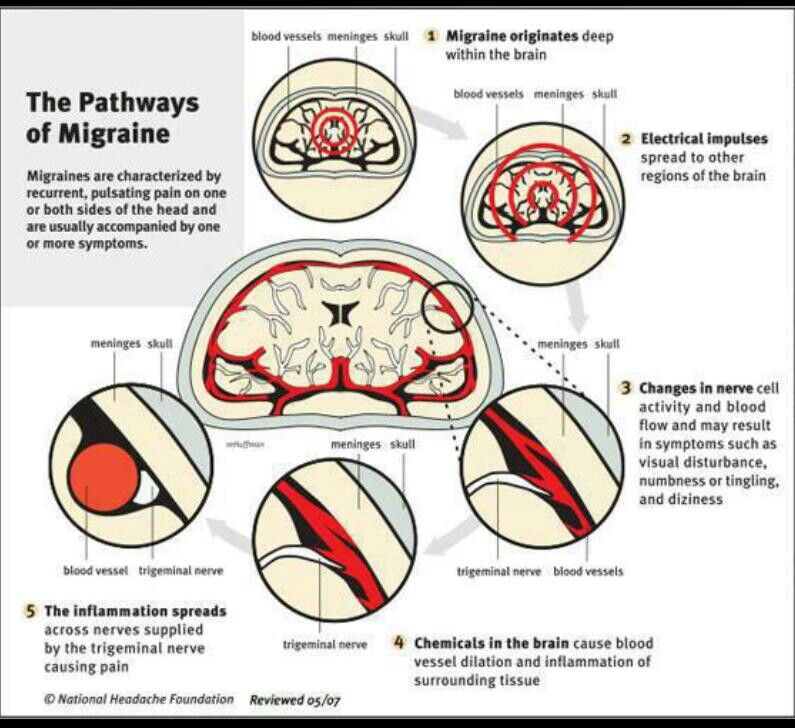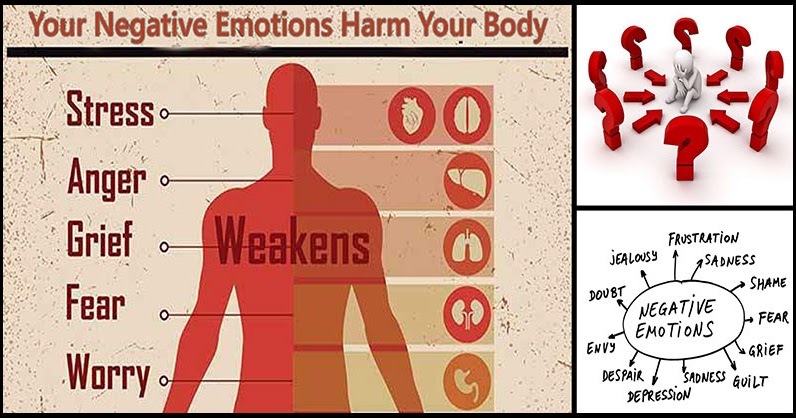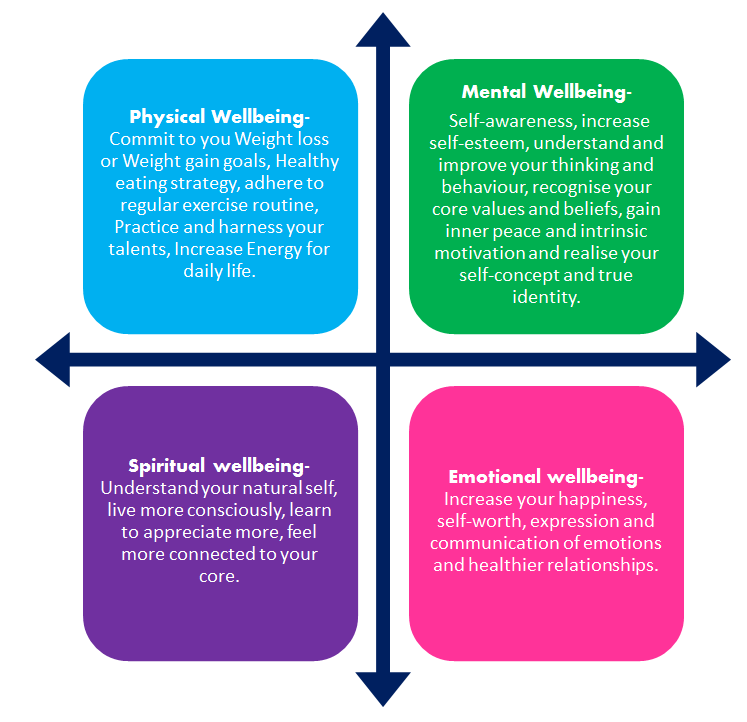Unresolved emotional issues
How Unresolved Emotions are the Root of All Disease
No, I’m not being an asshole.
Unresolved, or stuffed emotions are behind ALL disease and suffering. And science proves it..(I’ll show you how) I know the medical community still pushes the false premise that one gets ill due to “bad luck or genetics.” But this, my friends, is a MF lie.
So, what are unresolved emotions and if they are unresolved, or stuffed within us, can we deal with them without getting sick or reliving the trauma or circumstances that caused the emotions in the first place?
What are Unresolved EmotionsMany psychologists acknowledge that emotions can remain unresolved, and are mainly not dealt with over one’s lifetime. Some would recognize this more as learned patterns of behavior like physical or verbal excuse.
But the abuse, while being a pattern of behavior, it stems from unresolved emotions that are never dealt with, which is why the afflicted person simply resorts to learned behavior instead of dealing with the emotions that got them to that point.
Constricting and imprisoning emotions are not comfortable to feel, and so usually become part of us, or our psyche. Feelings of low self-worth, sadness, worry, guilt and more can all too easily be bottled up and stuffed deep inside of us. And when not dealt with, these emotions lead to emotional problems, self-sabotaging behavior and physical health problems.
The real reason we get sick is quite often a result of these buried emotions, and here’s why.
Emotions that have never been dealt with or acknowledged lie dormant in the various memory pathways throughout our bodies. Some would call this being “attached to the past.” This can be positive or negative attachments to the past…for example we can ruminate on “the good ‘ol days” and lose tracking in the present. When we encounter a situation that is similar to a past event that caused a great deal of emotion, we experience the same feelings. Often, we don’t realize that we are automatically reacting, and our behavior quickly feels normal. This can lead to limiting and self-sabotaging behavior such as:
This can lead to limiting and self-sabotaging behavior such as:
- Emotional repression
- Impulsiveness
- Feelings of being blocked in life
- You abuse family members emotional or verbally (and in extreme cases physically)
- You find it difficult to talk about a past negative experience
- You randomly feel anxiety, grief, fear or pain for no reason (or at least it seems)
- Repeating mistakes
That’s a good question, and unfortunately a common one. As a society, we have become accustomed to separating our bodies and mind. The medical community has trained us to believe that all illness and sickness stems from germs, bacteria, virus and other nasty pathogens.
The reality is that, while these all do exist and do play a role in our health, the bigger reality is how our bodies deal with the pathogens. Does our immune system fight them like it should? Or were you led to believe you were born with an inherent weakness that causes your natural immunity to not work the way it should?
BalanceIt is more than likely a combination of lifestyle and emotions that contribute to our overall wellness. But not only that, there are direct links between disease and emotions, such as anger and cancer or sadness and worry and heart disease. But finding direct links may prove more difficult than simply searching the medical journals for what emotions cause cancer, diabetes or heart disease.
But not only that, there are direct links between disease and emotions, such as anger and cancer or sadness and worry and heart disease. But finding direct links may prove more difficult than simply searching the medical journals for what emotions cause cancer, diabetes or heart disease.
Unresolved emotions cause chemical reactions in the body. Some of these reactions include the release of excess cortisol, adrenaline rushes and a suppression of digestive enzymes. Many people have heard that stress can lead to an ulcer or even a heart attack. But what is stress?
Stress is considered to be any physical reaction to an external force such as a traumatic event. But stress is also created by lifting a weight or running. Stress may be due to depression, anxiety or fear. Each of these emotions create physical disruptions in our bodies, but its when the stress reactions take place on a regular basis.
When emotions remain unresolved and are buried deep within us, our bodies still react to them, whether we realize it or not.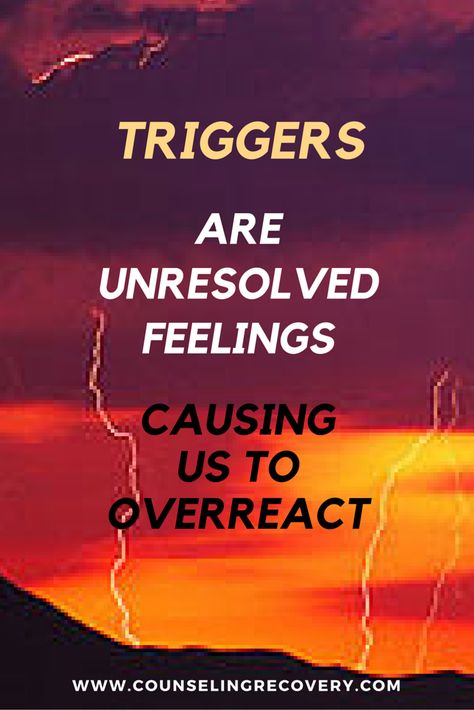 The anxiety that one feels for seemingly no reason in the middle of the day is a physical reaction your body is having to a repressed emotion (often due to a repressed memory). If you are constantly stressed at work, the stress may become a state that you become used to.
The anxiety that one feels for seemingly no reason in the middle of the day is a physical reaction your body is having to a repressed emotion (often due to a repressed memory). If you are constantly stressed at work, the stress may become a state that you become used to.
The state of being in constant stress is more common than many people believe. Many massage therapists and chiropractors see this every day as people may live their entire lives with hunched shoulders full of tension and stress. Or the tension may be locked in the back, hips, legs, or even the head. (I know, I worked as a massage therapist in the past)
This tension and stress create physical reactions as described above, but it becomes more widespread than that. As muscles are tensed, they can restrict blood flow and lymphatic flow (your lymph is what carries your immune system cells throughout your body). The tension can stop waste from leaving the body.
Stress and tension can suppress digestion, or cause food to move through your body so quickly that you cannot absorb nutrients. It can interfere with your body’s ability to control blood sugar, stop the immune system from suppressing cancer cells, and cause plaque buildup in your arteries.
Indirect Stress vs Emotional Impact on DiseaseAll of the situations described above would be considered indirect effects of stress by the medical community. But the term stress has become so commonplace that it seems we no longer pay attention to it. We almost expect to be under stress as we live our lives, and when we feel too stressed, we can learn stress management techniques.
While this may be true, we also have to recognize that stress is a sweeping term used to describe many emotions. In fact, buried emotions are often the reason why many people cannot deal with stress. And we have to remember that stress includes fear, anxiety, depression, worry, sadness, anger, and irritability, but stress can also create these feelings.
Taking a holistic approach to health, disease and illness includes taking care of our physical with healthy foods, herbs, or however you choose to heal. But if you do not pay attention to the emotional aspect, you may find it more difficult to heal or continue to get sick in other ways.
Working through your emotions is not only possible, but possible to do without reliving past, traumatic experiences. In my program The Harmony Keys I teach people how to easily and effortlessly access old stuffed emotions and release them, so they are able to reduce their stress levels and take their healing back in to their own hands. In fact, many people have had such success with this program they are now working with me privately to become certified Harmony Keys Practitioners. (Link to Dream Weaver). It’s amazing how many people have stated that they’ve gone from a level 10 to a level 1 or 2 (or even zero) using these techniques. Your unresolved emotions do not have to rule your life or your livelihood any longer.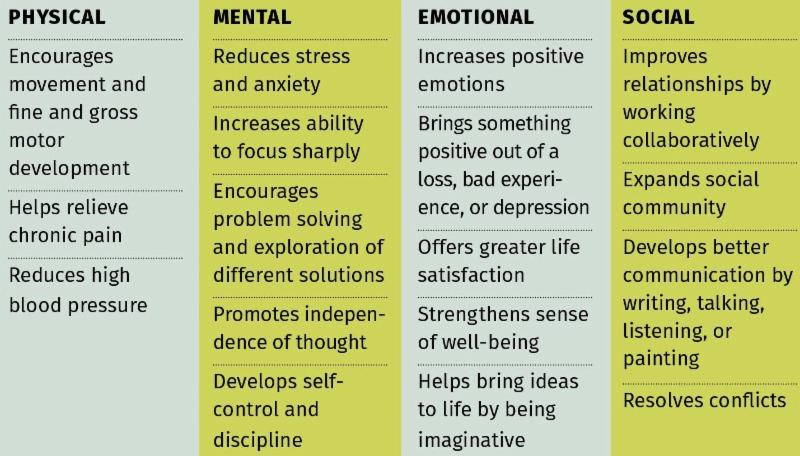 On more day in the past is one too many.
On more day in the past is one too many.
It is up to us to take care of our bodies as well as our minds, and approaching health and wellness from a new paradigm is an excellent start to longevity and prosperity.
7 Signs of Unresolved Emotional Suffering
It’s a mistake to think that difficult situations, ones that have caused you a lot of unresolved emotional suffering, get better just by letting time go by. Not being impulsive, or thinking about something else, usually isn’t enough. The problem, or the trauma, might close up instead of improving. That’ll make it even harder to get the suffering to stop, even though each X on the calendar might make the pain a little duller.
In general, wallowing in your pain forever or avoiding it aren’t good solutions. You have to really make an effort to digest your painful experiences. In other words, you need to truly understand them and change the mark they make on your life.
Most of the time, when you have some kind of unresolved emotional suffering, life starts to get complicated. You have a chronic bad temper, your immune system gets weaker, and it’s really hard to focus on things. You feel bad, but you can’t figure out exactly where the problem is coming from. These are just some of the signs that you need to work through something in your past.
You have a chronic bad temper, your immune system gets weaker, and it’s really hard to focus on things. You feel bad, but you can’t figure out exactly where the problem is coming from. These are just some of the signs that you need to work through something in your past.
This is one of the most common signs of unresolved emotional suffering. It enters your life in the form of constant irritation. You get angry over just about anything, and you start arguing or having conflicts with other people a lot. You’re constantly in a bad mood, and there’s nothing anyone can do or say to get you out of it.
It’s like there’s a deep rage inside you that just won’t go away. The way you express your anger starts to get way over the top. You have violent explosions of rage more and more often. You might even start to try and change your behavior, but can’t pull it off in the end. You go through your days asking for forgiveness and get angry with yourself too.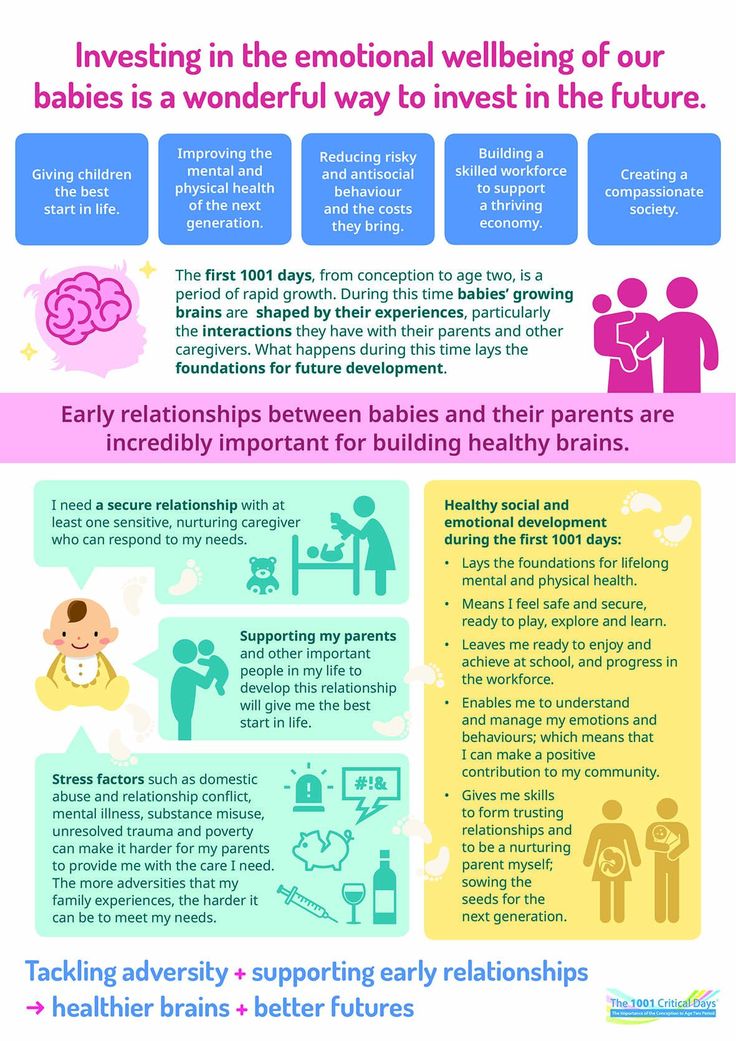 On top of that, you constantly look for things to justify your anger. The truth is that deep down you might be dealing with unresolved emotional suffering.
On top of that, you constantly look for things to justify your anger. The truth is that deep down you might be dealing with unresolved emotional suffering.
It’s not always easy to notice, but your relationships with other people change. Suddenly everyone seems boring, not worth your attention, or honestly just unbearable. It’s hard for you to see the good side in anyone around you. Instead, you end up finding all their faults.
You might feel like going out and meeting up with someone, but right before you leave, you change your mind and get into bed. You make up excuses so that you don’t have to share things you used to. You feel like you prefer to be alone, but you’re not comfortable then either.
3. Personal neglectPeople who love themselves and value who they are and what they have take care of themselves and everything else. We’re not just talking about your external appearance, though. It also has to do with just about anything related to your routine. For example, your eating schedule might start to become completely random.
It also has to do with just about anything related to your routine. For example, your eating schedule might start to become completely random.
It happens with sleep too: you either do it too much or too little. Your regular habits basically just go out of control. Some people even start to put themselves into situations that are dangerous for their physical health or their integrity.
4. Hopelessness, another sign of unresolved emotional sufferingHopelessness is like the feeling of having a compass that doesn’t work, where you can’t find north. It has to do with the kind of thoughts that nothing will ever change in the future. You think you’re in a bad situation and everything is going to stay that way no matter what you do. When you look ahead all you see is an endless repetition of all the same things. You feel no interest or enthusiasm at all about what’s ahead for you.
This feeling of hopelessness might just come around every once in a while, or it could even be permanent. If it last a long time you might feel like you’re about to lose your mind or put an end to it all. If you get to that point, it means you need help.
If it last a long time you might feel like you’re about to lose your mind or put an end to it all. If you get to that point, it means you need help.
When you have unresolved emotional suffering, your head fills up with really irrational, unlikely fears and worries. They might even start to be obsessive. For example, you might start to think there’s going to be a fire in your house. So day after day, over and over again, you try to find all the causes for this imaginary fire that’s entirely in your head, which is exactly why you’re so scared of it. Every. Single. Day.
Compulsive behaviors generally start as a kind of instant (but not long-lasting) remedy for your obsessions. But they end up making your a prisoner to your obsessions. It might seem like the best way to deal with them at first, but in the long run all you’re doing is feeding them.
6. FatigueA lot of people with unresolved emotional suffering start to feel tired all the time. It happens on both a mental and a physical level. It’s like you don’t have the energy for anything, like what used to be a nice, gentle hill has turned into a steep rock wall.
It happens on both a mental and a physical level. It’s like you don’t have the energy for anything, like what used to be a nice, gentle hill has turned into a steep rock wall.
This lack of energy also leads you to live a more sedentary life. When you have free time you spend it in bed watching TV or taking a nap. You don’t feel like you have the strength to do anything besides saving your energy to climb the walls that have just shown up in your life.
7. Lack of desire
A deeply set emotional suffering can also bring down your levels of sexual desire. But it goes beyond not wanting to have sex, it also means losing interest in caressing and being caressed, in seducing and being seduced.
Losing that sense of desire also means losing a source of pleasure. It was an activity that used to give life some color and strengthened your bonds with your partner too. So it’s also not uncommon for your intimacy with that other person to be threatened without these moments.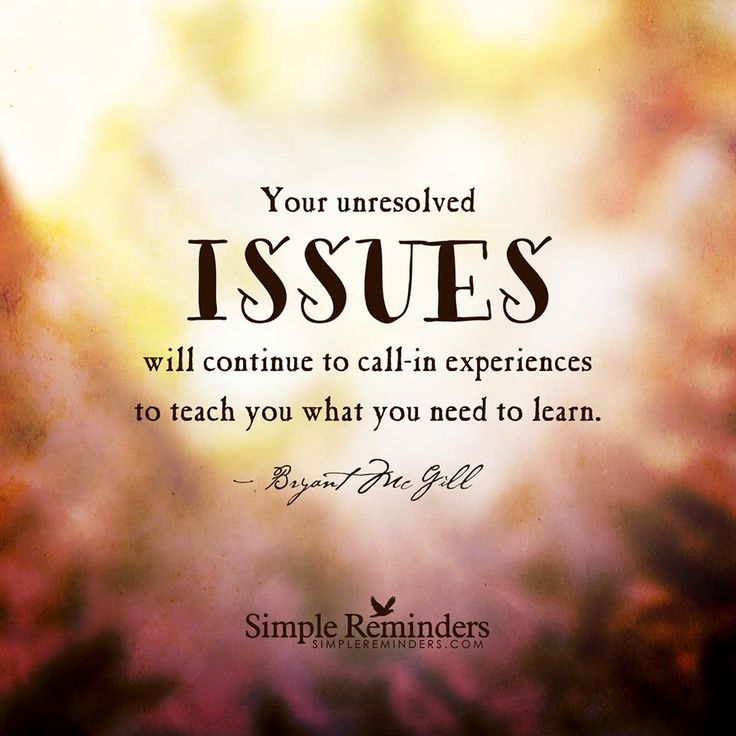 The worst part is that it happens right when you need their support the most. Getting their empathy becomes harder at just the wrong time.
The worst part is that it happens right when you need their support the most. Getting their empathy becomes harder at just the wrong time.
All these things can be signs that you have unresolved emotional suffering. It’s somewhere in your past. You might be able to figure out where the pain is coming from sometimes, but other times no. Either way, you’re in a situation that cries out for help from a trained professional. It might surprise you just how much they can assist you.
It might interest you...
8 examples of emotional baggage to get rid of
Emotional baggage refers to unresolved emotional problems, experienced disappointments, past mistakes, psychological trauma, and all that, in fact, is a heavy burden for us. Almost every one of us drags this burden along with us, often not wanting to get rid of it or not even realizing how much it spoils his life.
Emotional baggage makes you emotionally unstable, prevents you from thinking objectively, maintaining healthy relationships with people around you, leads to the development of self-doubt and painful perception of criticism, etc. Disappointments, mistakes or traumas from your past, even if they happened during your childhood, continue to negatively affect your here and now life because they remain unresolved. For example, if you once dated a girl who was not honest with you or even cheated on you, it can be difficult for you to start a new relationship just because of the emotional baggage. nine0003
Disappointments, mistakes or traumas from your past, even if they happened during your childhood, continue to negatively affect your here and now life because they remain unresolved. For example, if you once dated a girl who was not honest with you or even cheated on you, it can be difficult for you to start a new relationship just because of the emotional baggage. nine0003
Getting rid of emotional baggage is difficult, but it is possible if you spend enough time and effort on it, enlist the support of loved ones, or seek the help of a qualified professional. Remember that your problems will not disappear on their own, and one day you will have to give them your attention anyway.
We have collected some examples of emotional baggage that you need to get rid of first.
1. Attempts to cling to the past
The past has long lost its relevance - it cannot be corrected and cannot be returned in any way. Therefore, clinging to the events that once occurred is at least useless, and in some cases even stupid. It will bring you nothing but regret and annoyance. No matter how trite this advice sounds - try to live "here and now", invest your time and energy in what you can influence. Make positive changes to your future and look back as little as possible.
It will bring you nothing but regret and annoyance. No matter how trite this advice sounds - try to live "here and now", invest your time and energy in what you can influence. Make positive changes to your future and look back as little as possible.
2. Self-doubt
Once upon a time, the closest people could doubt you - parents, relatives, friends or a loved one. The realization that instead of support you receive from those who are dear to you, only reproaches, ridicule and distrust, hits hard on your self-esteem, and prevents you from doing what you really want. But you must throw off this emotional baggage from yourself as early as possible. Otherwise, you will turn into an insecure person who voluntarily gives up the life of his dreams for the sake of inner peace. nine0003
3. Excessive self-criticism
If in the past your actions, decisions and words were often severely criticized, you can turn into an overly self-critical person. You will scold yourself for the slightest mistake, find fault with every detail and every word you say, demand more from yourself, etc. Naturally, such an attitude towards yourself will leave a certain imprint on your self-esteem and psychological state.
Naturally, such an attitude towards yourself will leave a certain imprint on your self-esteem and psychological state.
4. Focus on the result, not on the process itself
Most often, this emotional baggage is carried by people whose relatives demanded that they achieve the desired result at any cost. If you focus only on the final goal, not paying attention to the process of work itself, this is the clearest sign that you have problems. First, you do not understand when you need to stop, give yourself a rest or consider if you have another way to your desired goal. Secondly, you do not get pleasure in the process of achieving the goal: you simply perform mechanical actions, or even worse, force yourself to do what you do not like, just to achieve a result. As a result, what you have been striving for so much, causes you only disappointment. nine0003
5. Thirst to earn love and respect from others
In order to gain the favor of others, you give up your own views, interests and ambitions. You put strangers before yourself, hoping that in return you will receive love and respect from them. But in most cases, your hopes will not come true, because no matter how hard you try, you will not be able to please everyone. The best thing you can do for yourself is get rid of your emotional baggage and stop trying to please everyone. nine0003
You put strangers before yourself, hoping that in return you will receive love and respect from them. But in most cases, your hopes will not come true, because no matter how hard you try, you will not be able to please everyone. The best thing you can do for yourself is get rid of your emotional baggage and stop trying to please everyone. nine0003
6. The role of the victim
Due to traumatic experiences or unpleasant past events, you may take on the role of the victim. And in this role you will be very comfortable, because the victim cannot be held responsible for everything that happens to her. You can blame all your troubles on circumstances, other people, the economy of your country or bad weather. And those around you at first will feel sorry for you and offer all possible help. Of course, until they understand that you are not striving to change anything in your life. nine0003
7. Fear of relationships
Remember one simple thing: your new girlfriend is not your ex, and you should not be suspicious of her, try to control her and be jealous for a reason or without. It kills relationships, makes them toxic. In the life of every person there was an unsuccessful romantic experience, but this should not leave a negative imprint on the rest of your life.
It kills relationships, makes them toxic. In the life of every person there was an unsuccessful romantic experience, but this should not leave a negative imprint on the rest of your life.
Get rid of emotional baggage: admit to yourself that the problem is not with your new girlfriend, but that you are not yet ready to trust anyone. Work on your condition: analyze your reactions to various events and words, control your behavior, work with a psychologist or psychotherapist. In general, do at least something to make your partner feel comfortable being in a relationship with you. nine0003
8. Desire to keep everything under control
Painful events from the past can develop in you an excessive thirst for control. On the one hand, it's great when you control the events taking place in your life. On the other hand, in any case, you will not be able to control everything. There will always be something you can't control. And it will unsettle you and make you experience the wildest stress.
10 great self-control techniques
Other related articles:
for life
Natalya Rivkina: “Psychological problems unresolved in childhood can cause difficulties in adulthood” | Blogs
The head of the Clinic for Psychiatry and Psychotherapy at the European Medical Center (EMC) spoke about why it is important to monitor the child's mood and sleep, how to help him cope with stress, develop harmoniously, and why you should not be afraid to contact a specialist.
Psycho-emotional problems
Finished reading here
There are two main groups of problems that people come to us with. The first is the difficulties that most families face: age crises, learning difficulties, changes in children's behavior, reactions to stress. The second group is mental disorders: autism, developmental delays, including genetically determined ones, schizophrenia spectrum disorders, and depression. Some of them require complex treatment in a hospital. nine0003
The second group is mental disorders: autism, developmental delays, including genetically determined ones, schizophrenia spectrum disorders, and depression. Some of them require complex treatment in a hospital. nine0003
Outpatient treatment and consultations take place in a very comfortable environment, the clinic has a specially equipped space for play therapy, the child does not feel like he is in a hospital. We have our own hospital at the EMC hospital on Shchepkina. We are one of the few clinics in Moscow where children are hospitalized with their parents. We do not have closed doors, there is no feeling that patients are in the hospital.
We work in a multidisciplinary team, children are being looked after by several specialists at the same time. Psychotherapists work with both the child and the parents. We explain to parents how to behave, how to respond to problematic behavior, how to support the child. In cases where there are problems with learning, a neuropsychologist is involved. When there are difficulties with adaptation, communication or the development of everyday skills, for example, a child cannot dress himself or cannot do his homework himself, a defectologist is involved. Children who find themselves in difficult life situations - the divorce of parents or the death of someone close - interact with specialists who are prepared to work with reactions to stress. nine0003
In cases where there are problems with learning, a neuropsychologist is involved. When there are difficulties with adaptation, communication or the development of everyday skills, for example, a child cannot dress himself or cannot do his homework himself, a defectologist is involved. Children who find themselves in difficult life situations - the divorce of parents or the death of someone close - interact with specialists who are prepared to work with reactions to stress. nine0003
When to see a psychiatrist?
There are several symptoms to watch out for. The first is sleep disturbance. Parents often complain that their child spends the whole night on social networks. Sometimes he just can't sleep. Sleep disturbances may be associated with disorders of the psycho-emotional sphere.
In young children, one of the manifestations of problems is fears.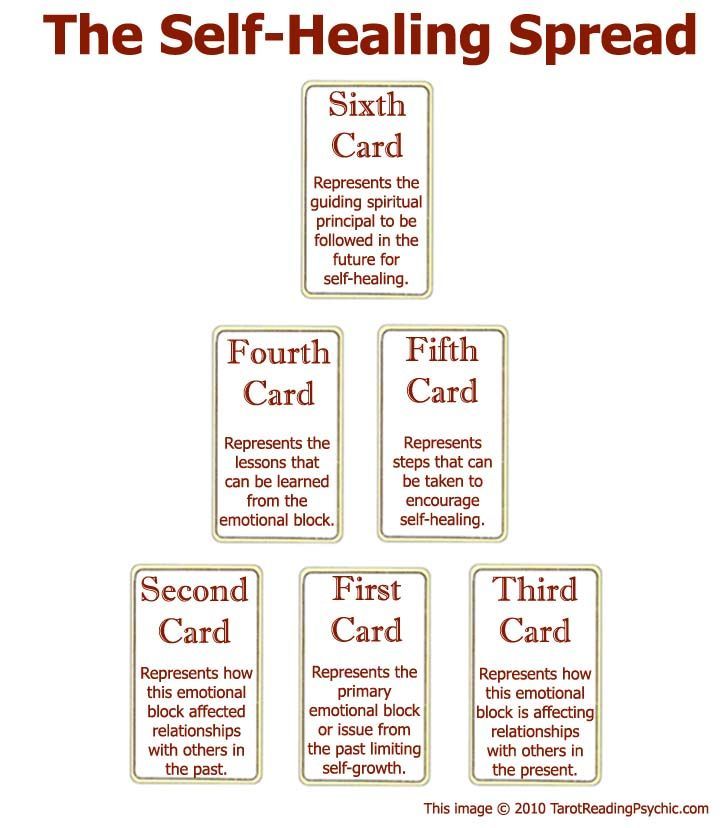
Children of all ages may develop negativism, isolation, conflict, behavior change. Another signal that parents often mistake for laziness is that when a child refuses to study, he quickly gets bored with everything. Often depression is hidden behind “laziness”. If it is difficult for a child to cope with ordinary tasks, he quickly loses interest, gets tired, this is not necessarily physical fatigue, it can be psycho-emotional exhaustion. And this is not a reason to punish the child. This is an occasion to discuss everything with a specialist. nine0003
Another serious problem is anti-vital or suicidal statements. Of course, as a teenager, many of us told our parents “I wish I had never been born,” but we must remember that behind such statements quite often lies the real unwillingness of the child to live. Parents may perceive these words as manipulation. Even if it's manipulation, that doesn't mean he can't commit suicide. When parents encounter such statements, it is imperative to contact a psychiatrist. nine0003
When parents encounter such statements, it is imperative to contact a psychiatrist. nine0003
About the work of a neuropsychologist
Neuropsychology is a modern direction, the essence of which is to support and develop the functions responsible for abstract thinking, memory, the formation of skills, and the assimilation of material. Very often, learning difficulties are related to problems with concentration, and this is not necessarily attention deficit disorder. This may be a slight delay in development, due to which the tasks assigned to the child turn out to be excessively difficult. nine0003
We all probably remember children who were distracted at school and distracted other children, who could run out of the classroom or crawl under the desk. These can be not only manifestations of attention deficit disorder, but also a reaction to stress, and a banal overload. The task of a neuropsychologist is to support children and develop concentration skills.
The task of a neuropsychologist is to support children and develop concentration skills.
A neuropsychologist performs diagnostics, assesses which functions are underdeveloped, and develops a correction program. These are interesting activities, for example, specially designed computer games, or physical exercises that involve different parts of the body and different muscles associated with the development of some mental functions. We actively use programs aimed at the proper development of self-regulation. For example, biofeedback. The goal is for the child to practice concentration skills. nine0003 Natalia Rivkina, Head of the Clinic for Psychiatry and Psychotherapy at the European Medical Center (EMC)
About gadgets, overwork and support for children
Today, children are under enormous pressure from a very young age.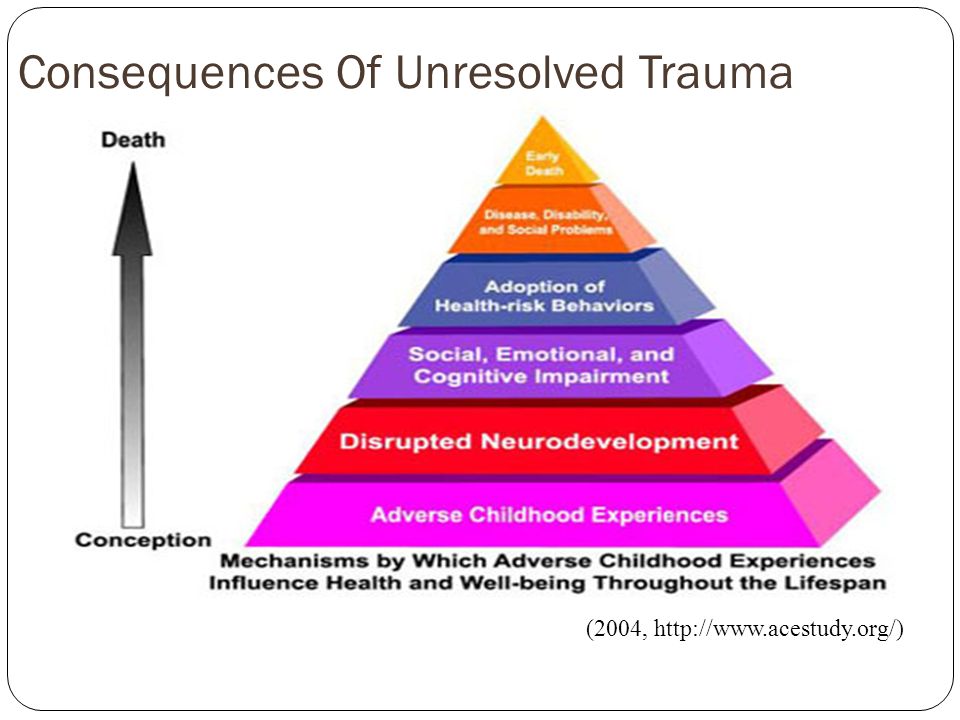 Therefore, for many, gadgets become the only means of distraction, a break from the reality in which they experience stress. There is also a flip side to this problem. Many children are deprived of the usual "children's games" and joys because of gadgets. For example, when they are "fooling around", fighting on pillows, sledding. Often children are deprived of emotional contact with their parents. Gadgets are becoming its replacement, and this is a direct path to the development of addiction and the psychology of addictive behavior. nine0003
Therefore, for many, gadgets become the only means of distraction, a break from the reality in which they experience stress. There is also a flip side to this problem. Many children are deprived of the usual "children's games" and joys because of gadgets. For example, when they are "fooling around", fighting on pillows, sledding. Often children are deprived of emotional contact with their parents. Gadgets are becoming its replacement, and this is a direct path to the development of addiction and the psychology of addictive behavior. nine0003
Problems of emotional development, lack of support in the future are fraught with more severe behavioral problems that can affect the rest of your life. In childhood, a person forms an image of himself, he formulates the answer to the question “who am I in this world?”. If for some reason he does not receive the necessary support, in the future he may experience difficulties in finding a partner, building close relationships, feeling happy.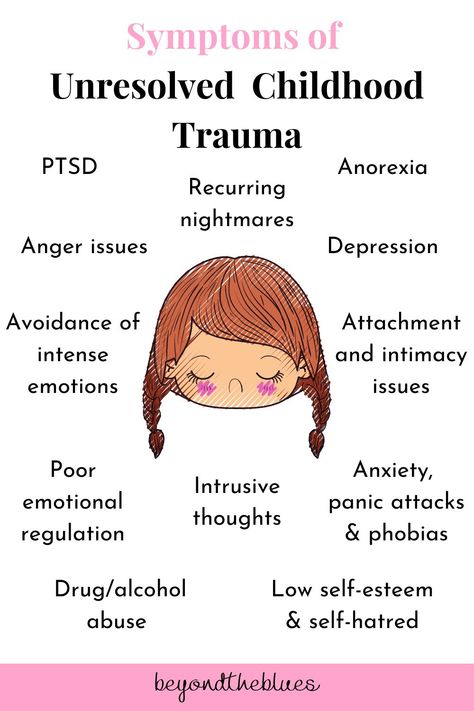 Unresolved psychological problems in childhood can cause difficulties in adulthood, which are much more difficult to cope with. nine0003
Unresolved psychological problems in childhood can cause difficulties in adulthood, which are much more difficult to cope with. nine0003
In a situation of overload, we work with parents to a greater extent, help them to correctly assess the child's abilities, structure his schedule. If parents are used to setting themselves ambitious goals, this usually translates to children. But it is important to remember that the child should always have time to fool around, to do nothing and behave as children should.
About autism spectrum disorders and schizophrenia
Children with autism spectrum disorders and schizophrenia have all the help they need. Usually, parents with such children have to go to different centers in order to receive comprehensive rehabilitation. We have all specialists working together according to a common plan. The baby can be led by a neuropsychologist, a defectologist, and a psychiatrist. nine0003
The baby can be led by a neuropsychologist, a defectologist, and a psychiatrist. nine0003
Schizophrenia usually starts during adolescence. The existence of problems can be indicated by sleep disturbances, isolation, difficulties with learning, rapid mood swings, strange statements. But all these symptoms are not specific, they are very easy to confuse with a teenage crisis. If a child has a conflict at school, this is clearly not a reason to go to a psychiatrist. But if, in addition to this, there is irritability, sleep disturbance, rapid mood swings, anxiety that exist for more than two weeks and continue to grow, it is better to contact a specialist. nine0003
At the moment, with proper treatment, there is a possibility of a stable remission. It is important to start helping as soon as possible. Unfortunately, we often encounter situations where parents are afraid to turn to a psychiatrist and for a long time try to solve the problem on their own or with the help of psychologists. As a result, the child does not receive the necessary treatment and it is much more difficult to help him.
As a result, the child does not receive the necessary treatment and it is much more difficult to help him.
About childhood depression
Depressive conditions can appear at an early age, sometimes from 5-6 years of age. They develop in children with a predisposition to depression, which, among other things, can be activated under the influence of external factors. Depression often requires hospitalization because, unfortunately, these conditions can become life-threatening when the child has suicidal ideation or cuts themselves to relieve mental distress. nine0003
Helping children requires a special skill. Unfortunately, only a narrow range of drugs is allowed for use in pediatric practice. A psychotherapist works with children, a psychologist works with parents. Our task is not only to cure the patient, but also to prevent the recurrence of the disease.
About Eating Disorders
Children often come to us with eating disorders, usually teenage girls with anorexia or bulimia. Unfortunately, parents do not immediately seek help, even seeing that the child restricts himself in food, does a lot of sports, loses weight. In girls, the menstrual cycle is disturbed, this is a dangerous factor, in the future it can lead to infertility and other problems. If parents see that their daughter is losing weight, she closes herself in the toilet after eating, causes vomiting, if the mother notices that the girl has a menstrual cycle, you should definitely consult a psychiatrist: eating disorders in severe stages threaten life. nine0003
Children with eating disorders require evaluation and here we are in an advantageous position: we can manage patients jointly with an endocrinologist, gynecologist and general practitioner, while conventional psychiatric clinics do not always have somatic doctors on staff. It is always inpatient treatment, with long-term psychotherapeutic support. When a child limits himself to food, he experiences a pleasant state of euphoria. Since anorexia is often combined with depression, it is difficult for a child to give up a state of lightness and emotional upsurge. A psychotherapist teaches a teenager to cope with difficult situations and emotional states. nine0003
It is always inpatient treatment, with long-term psychotherapeutic support. When a child limits himself to food, he experiences a pleasant state of euphoria. Since anorexia is often combined with depression, it is difficult for a child to give up a state of lightness and emotional upsurge. A psychotherapist teaches a teenager to cope with difficult situations and emotional states. nine0003
Parental misconceptions
In our country, there is a misconception about drug therapy. It is considered dangerous, there is a myth that it causes addiction, changes the personality of a person. Unfortunately, this leads to the fact that parents use all possible means, including psychics, just not to go to a psychiatrist. In fact, drug therapy for many children is an absolute salvation. It helps them to live a normal life, because it is mental disorders that really change a person’s personality. In addition, parents fear that the child will be stamped: he was treated by a psychiatrist. In our clinic, any information about patients is confidential. nine0003
In addition, parents fear that the child will be stamped: he was treated by a psychiatrist. In our clinic, any information about patients is confidential. nine0003
Another myth is the belief that diagnosis in psychiatry is relative and subjective. We work with a clear diagnostic system, which is based on international standards, and at the same time we have the possibility of additional clinical examinations.
How to prevent children's mental disorders
In order to prevent a mental disorder, you need to contact a specialist in time. As for psycho-emotional, neurotic problems, emotional contact is first of all important here. You need to spend more time with your kids. Many parents do not have such an opportunity now, so we suggest creating special family rituals. For example, at certain times, play together or go to a cafe.